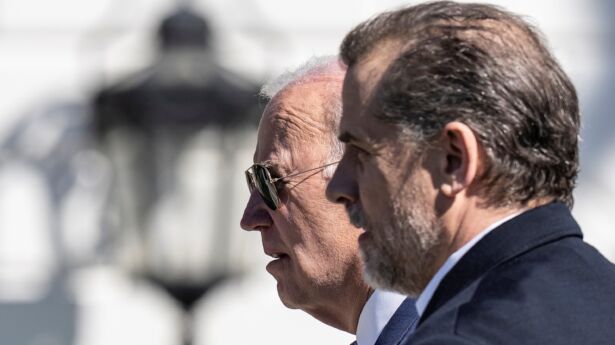A federal judge in Delaware dismissed misdemeanor tax charges against Hunter Biden on Aug. 17 in a move that was widely expected after his “sweetheart deal” with federal prosecutors was put on hold last month.
U.S. District Judge Maryellen Noreika, who was appointed by President Donald Trump and is presiding over the case, dismissed the charges against the younger Mr. Biden.
The decision came after special counsel David Weiss—the U.S. Attorney for the United States District Court for the District of Delaware and the federal prosecutor leading the case against Mr. Biden—earlier asked the judge to dismiss the charges, citing venue problems.
Dismissing the two misdemeanor tax charges against Mr. Biden potentially allows for new charges to be bought against him in another jurisdiction, such as California or Washington, D.C., as part of Mr. Weiss’s ongoing probe.
“The Government, in the exercise of its prosecutorial discretion, is considering what tax charges to bring in another district and may elect to bring the same charges set forth in the instant information or different ones,” prosecutors said in court filings last week.
Mr. Weiss was appointed as special counsel on Aug. 11 by Attorney General Merrick Garland, meaning he will oversee the case, United States v. Robert Hunter Biden, as well as for any other matters that arise from the ongoing investigation into the president’s son, who is also being investigated for possible foreign lobbying violations.

Concerns Over New Special Counsel
“On Tuesday of this week, Mr. Weiss advised me that in his judgment, his investigation has reached a stage at which he should continue his work as a special counsel, and he asked to be so appointed,” said Mr. Garland in announcing Mr. Weiss’s appointment last week.
“Upon considering his request, as well as the extraordinary circumstances relating to this matter, I have concluded it is in the public interest to appoint him as special counsel. This appointment confirms my commitment to provide Mr. Weiss [with] all the resources he requests. It also reaffirms that Mr. Weiss has the authority he needs to conduct a thorough investigation and to continue to take the steps he deems appropriate independently, based only on the facts and the law,” Mr. Garland said.
Multiple Republican lawmakers have raised concerns that Mr. Weiss, who earlier signed off on the sweetheart deal for Mr. Biden, will not remain impartial in the case against the president’s son, while others have questioned whether or not he is qualified enough to hold the latest role.
Two IRS whistleblowers have also alleged that Mr. Weiss has been restricted by the Department of Justice from filing certain charges against Mr. Biden and that the president’s son has received preferential treatment.
Mr. Biden’s two misdemeanor charges stem from his failure to pay taxes on time in 2017 and 2018 and each carries a prison term of up to one year upon conviction.
Sweetheart Deal Crumbles
The president’s son had earlier this year agreed to plead guilty to two misdemeanor tax evasion charges and accept probation in a third charge in which he acknowledged lying on a federal firearm purchase form during a time when he was using illegal drugs.
Under an agreed diversion program, Mr. Biden, if he complies with the terms, would be able to avoid future prosecution and would not go on trial for the gun charge, which is a felony and would carry up to 10 years in prison.
However, the deal was rejected by Judge Noreika in July during a hearing amid confusion over a separate gun charge and questions about the immunity it would have granted Mr. Biden, who subsequently pleaded not guilty to the tax charges.
Despite the sweetheart deal being rejected, lawyers for Mr. Biden said last week they consider the arrangement is still in effect because both sides had signed it.
However, Mr. Weiss has said this is not the case and noted that the probation office did not sign off on the agreement.
“In sum, because Ms. [Margaret] Bray, acting in her capacity as the Chief United States Probation Officer, did not approve the now-withdrawn diversion agreement, it never went into effect and, therefore, none of its terms are binding on either party,” Mr. Weiss wrote in a court filing (pdf) earlier this week.
“Seeing that the parties were at an impasse, the Government informed the Defendant, in writing on August 9, 2023, that it was withdrawing the most recent version of its proposed plea and diversion agreements,” Mr. Weiss said. “That is why the Government has asked the Court to vacate its briefing order and has moved to dismiss the criminal tax information.”
From The Epoch Times

